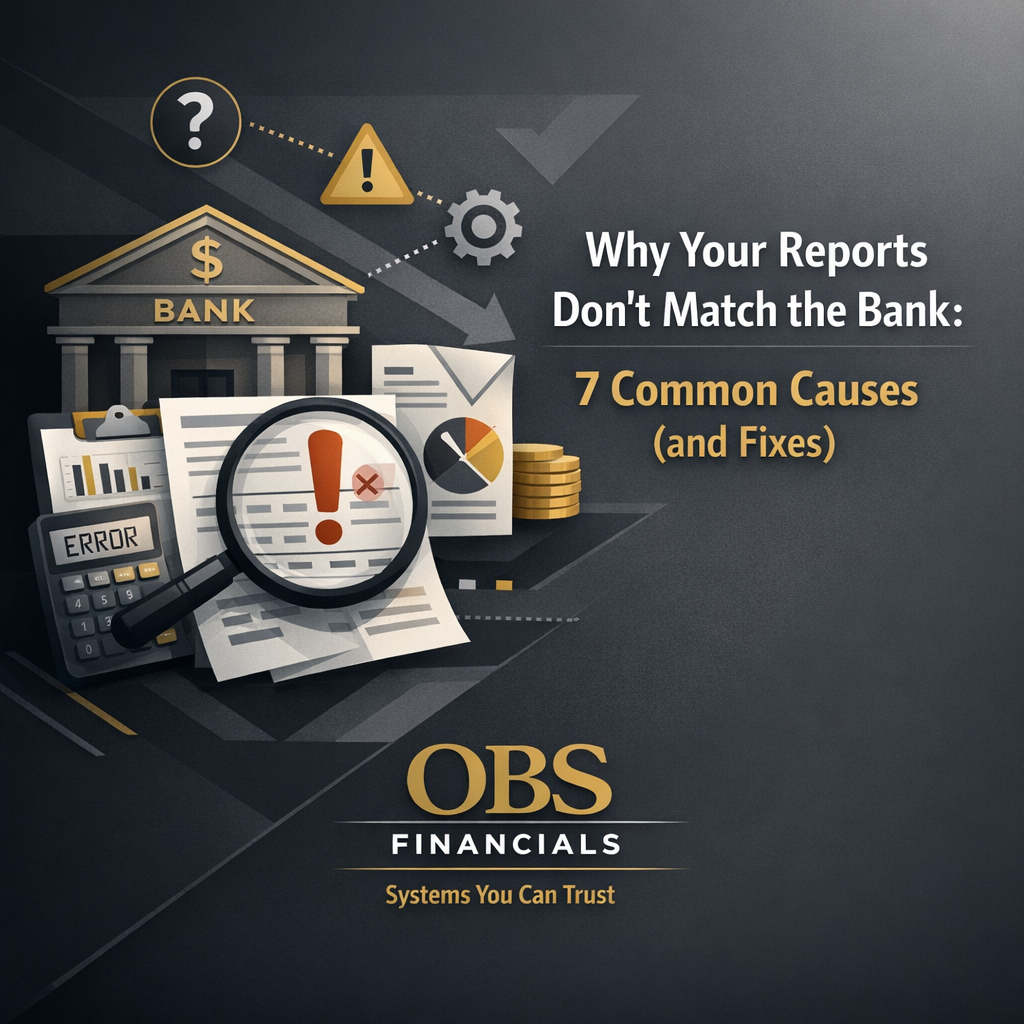In today’s fast-paced global economy, having an updated financial system is no longer a luxury but a necessity. Financial systems, encompassing central banks, financial institutions, and the intricate web of international financial markets, underpin the flow of capital, risk management, and economic policy decisions worldwide. Whether you are working within a federal financial structure like the Federal Reserve System in the United States or navigating the complexities of the global financial system, staying current with the latest advancements in financial management systems ensures you can safeguard financial stability, meet regulatory expectations, and adapt to emerging economic challenges.
Without these updates, businesses and governments alike risk misinterpreting vital financial data, falling behind in efficiency, and exposing themselves to significant financial risks that ripple through international monetary frameworks and cross-border operations.
Inaccurate Financial Reporting and Analysis
Delayed Decision Making
When financial systems are outdated, the accuracy and timeliness of financial reporting suffer, which directly leads to delayed decision making. Without reliable data flowing promptly from your financial management system, key business and policy decisions—ranging from day-to-day operations to long term strategic planning—can be stalled or based on incomplete information.
This lag in processing financial data can slow your response to market changes, regulatory updates, and emerging financial stability risks, leaving your business vulnerable in the competitive and rapidly evolving global financial system.
Risk of Errors
Outdated financial systems often rely heavily on manual input or lack advanced automation, which significantly increases the risk of errors such as incorrect revenue recognition, expense misclassification, or faulty data entry. These mistakes can distort the true financial health of your organization, potentially triggering compliance issues with standards like IFRS or GAAP, and exposing you to regulatory fines or damaging your credibility with investors, creditors, and international financial institutions. Errors also amplify the risk of costly tax penalties and can undermine your relationship with critical stakeholders, including central banks and bank reconstruction development programs involved in maintaining economic and financial stability.
Impact on Business Strategy
Accurate and timely financial analysis is the cornerstone of sound business strategy, especially when operating across multiple jurisdictions and currencies in emerging or developed markets. If your financial system does not provide clear, comparable, and comprehensive data, your strategic planning runs the risk of misallocation of resources, missed investment opportunities, and flawed risk management.
This can weaken your position in the international monetary landscape and impair your ability to manage cross border payments or engage effectively with entities such as the International Monetary Fund or the Bank for International Settlements. Ultimately, an overlooked need to upgrade financial systems jeopardizes sustainable growth and resilience against financial crises.
Increased Risk of Non-Compliance with Regulations
Changing Regulatory Environment
The landscape of financial regulation is continuously evolving, driven by shifting economic conditions, technological advancements, and emerging threats to financial stability. Outdated financial systems struggle to keep pace with these changes. As regulators in various countries update rules concerning data privacy, anti-money laundering, and cyber resilience, relying on legacy platforms can leave you exposed to compliance gaps.
Your existing system may lack the capability to integrate real-time data monitoring or adapt quickly to new regulatory demands, increasing your risk of non-compliance within complex international financial frameworks and centralized oversight.
Penalties and Fines
Failing to comply with current financial regulations can result in severe monetary penalties and reputational damage. Financial authorities and entities like the Federal Reserve, central banks, and international monetary bodies are increasingly vigilant in enforcing compliance. Organizations using outdated systems have found themselves subject to fines running into millions for issues ranging from inaccurate regulatory reporting to cybersecurity breaches.
Moreover, these penalties may cascade into increased operational costs and difficulty in securing future funding or partnerships, severely impacting long-term viability in the global banking system.
Resource Drain
Maintaining compliance with an outdated financial system consumes disproportionate resources. Since legacy platforms often cannot automate essential compliance workflows, your teams may resort to manual data extraction and reconciliations, significantly increasing labor hours and the risk of human error. This inefficiency not only strains operational budgets but also diverts focus from strategic financial management and growth initiatives.
In the face of heightened financial stability risks globally, this resource drain impairs your ability to respond swiftly to market changes and regulatory developments, weakening your position in the competitive international market.
Scalability and Efficiency Challenges
Handling Increased Transaction Volumes
As your business expands, the sheer volume of transactions grows exponentially, posing a significant challenge to outdated financial systems. Legacy platforms, often built for batch processing, lack the capacity to handle real-time workloads demanded by today’s digital economy.
This limitation causes delays in clearing payments, processing trades, and settling accounts, undermining the agility required to compete in markets driven by instant payments and rapid trading. Such bottlenecks not only frustrate customers but also reduce your ability to leverage growth opportunities in emerging and international markets where seamless transaction flow is critical.
Integration Issues
Outdated financial systems generally consist of monolithic architectures that are difficult to integrate with modern technologies, including cloud services, APIs, and fintech solutions. This fragmentation hampers data sharing across internal departments and with external stakeholders such as central banks, international financial institutions, and payment networks handling cross border payments. As a result, efforts to implement modular, flexible solutions are bogged down by compatibility issues, causing inefficiencies and stalling innovation initiatives essential for adapting to evolving financial management demands.
Cost Implications
Maintaining legacy financial infrastructure is costly. Not only do these systems require continuous upkeep and patching, but their inefficiencies drive up operational expenses through longer processing times and increased manual interventions.
Moreover, the scarcity of skilled personnel familiar with obsolete technologies inflates maintenance costs. Attempts to retrofit these systems for newer compliance requirements or technologies often cause spiraling expenses without delivering corresponding improvements in performance.
In the long run, this creates a financial drag that limits reinvestment in growth initiatives and diminishes the capacity to respond to global financial market shifts.
Conclusion
Whether you’re launching your first venture or managing a fast-growing company, OBS Financials is here to bring clarity, confidence, and calm to your finances. With over a decade of experience and certified expertise, they offer more than just bookkeeping — they provide peace of mind. From financial cleanup to payroll, monthly bookkeeping, and CFO-level insights, their flat-rate, insured services grow with your business.
Book a free consultation today and discover how OBS Financials can help you reclaim your time, reduce stress, and make smarter financial decisions with a partner who treats your business like their own.
FAQ
What are some of the most significant hidden risks associated with scaling a business without updating its financial systems?
Scaling a business without updating financial systems risks cash flow problems, operational overload, and inaccurate accounting, leading to poor decision-making. It can cause bottlenecks, delayed payments, and security vulnerabilities. Additionally, manual processes waste time, increase errors, and hamper the ability to manage inventory, payroll, and reporting effectively, threatening growth.
How can outdated financial systems hinder the scalability and growth of a company?
Outdated financial systems hinder company scalability and growth by causing slower processes, inefficiency, and high maintenance costs. They limit agility, delay decision-making, create integration issues, and increase security risks. Legacy systems consume budgets, reduce productivity, and prevent companies from adapting to market changes and innovation, stalling revenue growth and competitiveness.
What are the potential consequences of failing to address security and compliance risks when scaling financial systems?
Failing to address security and compliance risks when scaling financial systems can cause regulatory fines, legal actions, operational disruptions, and costly remediation. It also increases vulnerability to cyberattacks and data breaches, undermines customer trust, harms reputation, and results in lost revenue and competitive disadvantage.
Continuous compliance and risk management are essential.
How can a company ensure that its financial systems are scalable and adaptable to evolving business needs?
A company ensures scalable and adaptable financial systems by aligning them with growth goals, automating repetitive tasks, integrating platforms for real-time data, and choosing flexible tools supporting increased transactions and new technologies. Regularly reviewing KPIs, building strong controls, and using expert guidance also maintain adaptability for evolving needs.




